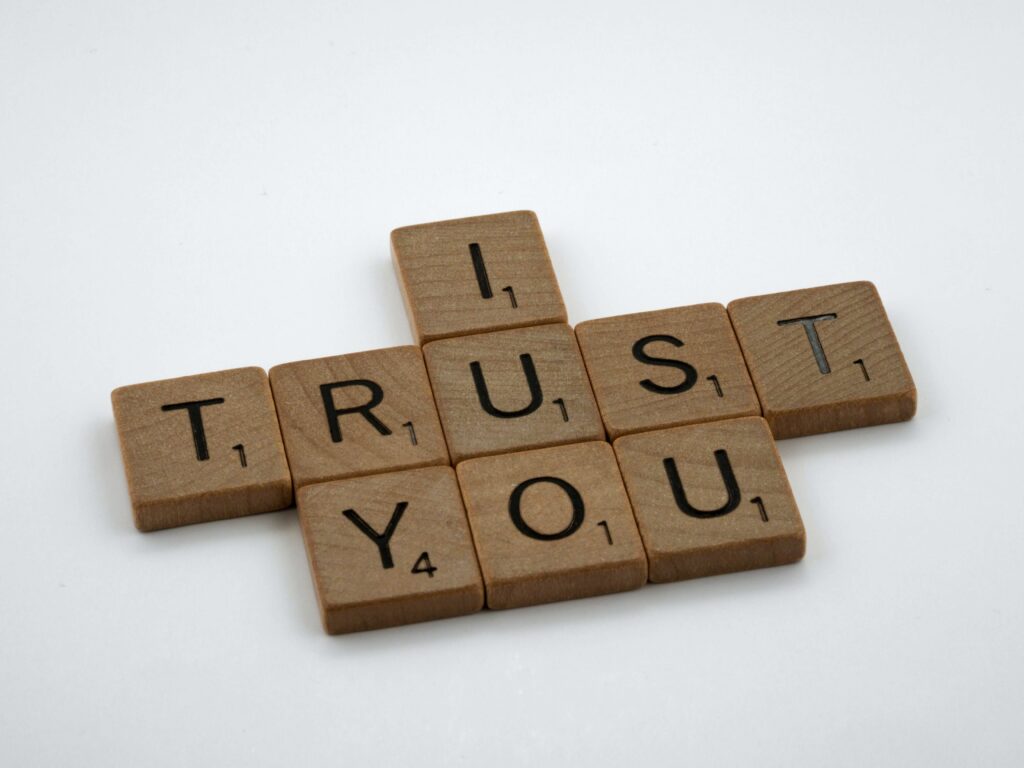An interesting judgment of the Rotterdam District Court, in which the father of a minor claimed that it should be established that the father had acted unlawfully towards his minor son.
The ultimate aim was, of course, that the minor son would be able to claim compensation for his damages from his father’s liability insurer (ABN AMRO). The case involved damages in the form of severe burns suffered by the minor during a barbecue in an aunt’s garden in June 2014. The minor was seven years old at the time.
Despite ambiguities in some, perhaps important, parts, the court nevertheless ruled that the father was liable for his son’s damages arising from the accident of 14 June 2014 and that the father’s liability insurer was liable to pay to the minor son that which the father was entitled to claim from ABN AMRO in respect of the damages suffered by the minor son from the accident of 14 June 2014. This makes this ruling worth discussing.
The defence
ABN AMRO disputed being liable to pay out under the policy in respect of personal injury, but did not dispute that the father could bring the direct action nor that, if the father had acted unlawfully, the policy would provide coverage.
ABN AMRO’s primary defence was that the facts of the incident were unclear because, it claimed, there were varying and contradictory statements made. In this regard, ABN AMRO pointed out that:
The father had first held the mother liable;
The father had then held the aunt liable;
The father now held himself liable;
The father and mother had first stated that the minor son had (immediately) prior to the accident played with cologne, a highly flammable liquid, while this would now be denied.
The evidence order
By way of interlocutory judgment, the court gave the father the following evidentiary order:
“instructs the father, in his capacity as legal representative of his minor son, to prove that the father committed an unlawful act towards his minor son on 14 June 2014 consisting of, while it was blowing briskly, spraying/dripping petrol on the smouldering barbecue near the minor and continuing to do so when the minor approached, which, after a gust of wind picked up, allowed the minor’s hair and/or T-shirt to catch fire.”
As part of the aforementioned evidence order, the father had five witnesses heard, namely the minor’s young adult sister, the minor’s aunt (the one at whose house the barbecue was held), a niece of the minor (the aunt’s young adult daughter), the minor’s mother and himself.
The court’s assessment
All five witnesses testified to having been present at the aunt’s house on 14 June 2014. Of these five witnesses, four, namely all the witnesses except the father, have stated that they did not see what exactly happened. The statements of these witnesses boiled down to the fact that they were not in the garden at the site of the barbecue but elsewhere in the house (of the aunt) and that when they noticed that something had gone wrong in the garden, they rushed to the garden and then observed that the minor had suffered burns and was even still on fire.
The court then drew the following conclusion from this:
“r.o. 2.6
The court hereby finds in any case proven that the minor’s burns were caused by the fire from the barbecue in the aunt’s garden on 14 June 2014. It has neither been argued nor shown that there was any other source of heat with which the minor came into contact on that day, at that place, that could have caused the minor’s injuries. The barbecue can be designated as the only logical source for the minor’s injury. To that extent, the ambiguity invoked by ABN AMRO regarding the circumstances of the minor’s injuries has now at least been removed.”
With this reasoning, the court actually looks through the ambiguities and manages to fish out the bottom-line, namely that the minor’s injuries were caused by the barbecue.
The court then turns to assessing the testimony of the father, the only witness who did see the incident happen. In this connection, I quote some key passages from his witness statement:
“(…)When I went into the garden, there was no one there. I saw in the garden that there was cabbage in the barbecue. The barbecue is about one metre (…). There was no lid on it. I saw that there were coals in it that were glowing slightly. I assumed that my sister-in-law had tried to light the barbecue but was unsuccessful. I then walked back to the garden door and asked my sister-in-law how the barbecue was normally lit and I asked if I would light it. She agreed and said that there would be a water bottle in the shed with liquid, which was used for lighting. She described that water bottle as a small, white plastic bottle. I took that water bottle from the shed, I don’t think it had anything on it. I took off the cap, but I did not smell that it was petrol. There was wind and my sense of smell is poor. I did not hear that it was petrol until 6 or 7 weeks after the accident (…).
I poured that liquid on the coals and then fire came immediately. Half of that fire was in the barbecue and the other half was a very long, straight stabbing flame, well over a metre and a half long. It was blowing and the wind made that stinging flame even longer. The petrol was also splashing while pouring. When I poured the petrol on the barbecue, I did not light the barbecue with a lighter or in any other way (…). I had never lit a barbecue with petrol before (…). It started burning immediately when I poured the petrol on it.
When I walked towards the barbecue with the water bottle, I saw the minor a few metres away from me by the house. (…) When I saw him in the garden, while I was at the barbecue with that petrol, he came running towards me. I shouted for him not to come towards me, but he came anyway. When I saw that stinging flame, he was one-and-a-half metres or even closer to the barbecue and he was still walking in my direction. I saw that his clothes were on fire and the fire was going towards his face. I picked him up. I remember holding him under the tap a little later (…).”
The court finds the father’s testimony credible and states that it is also consistent with what is otherwise established regarding the facts. With this, the court also ignores the alternative scenario outlined by ABN AMRO in which the minor would have played with the flammable substance cologne, was thereby sprinkled with this mildly flammable substance and that he then came (too close) to the barbecue, because the available evidence does not provide sufficient indications for this.
The assertions concerning cologne could be interpreted as a causation defence within the meaning of Section 6:101 of the Dutch Civil Code. ABN AMRO bears the burden of proof of these assertions. However, they have not been established. It is of importance here that also the medical statements regarding the injuries did not indicate the presence of cologne.
It is also important that ABN AMRO has explicitly not put forward any defence of its own fault. Failing this, the court also left open whether the own fault defence would have been raised in the case of a child of only seven years old.
The court thus concludingly assumes a situation where the father sprinkled petrol on an already smouldering barbecue. Based on this, the court finds that the father, as the person who (further) lit an already smouldering barbecue by pouring petrol on it, created a – substantially – endangerment situation.
In cases of endangerment, the criteria of the Kelderluik judgment are of course normative (HR 5 November 1965, LJN AB7079, NJ 1966/136). The court therefore comes to test this in r.o. 2.9 and rules as follows:
“Petrol is a volatile (rapidly evaporating) and highly flammable substance. Leaving aside whether petrol (or any other fuel of which one must assume, as in this case, that it has more or less equivalent properties to petrol) is at all suitable for lighting the barbecue, the petrol is in any case not suitable for throwing on an already smouldering barbecue. This is all the more true since the father used an unknown liquid (which later turned out to be a kind of petrol) with which he had no experience. It is a fact of general knowledge that throwing petrol on smouldering fire creates the risk of (naked) flames. Stinging flames generally, if people are around, easily produce burns, which can be very serious. Because of the unpredictable behaviour of fire in the open air, this is a major risk. This is already true when it is windless and even more so when it is windy. It follows sufficiently from the witness statements that it was windy (…) The dispute of ABN AMRO Schadeverzekeringen that the wind was strong does not require a different opinion. Even in low wind (and even in windlessness), the court considers, as stated above, the conduct, already too risky.
The father knew that there were children in and around the house, including his minor son. There was, in the court’s view, a high probability of careless behaviour by the minor. This is a relatively young child, to whom fire and a barbecue can have great appeal. Young children are also certainly not always inclined to immediately obey a parent’s first order (in this case, the order not to approach).
It was, finally, relatively easy to take adequate safety measures by lighting the barbecue not with petrol but with firelighters, as the father himself says he normally did.”
The court then ruled that the conclusion was justified that the father had acted imputably unlawfully towards his minor son.
According to the court, it also does not lead to a different judgment that the father warned his minor son not to go near the barbecue and that he did not respond to it. Indeed, in relation to children as potential victims of endangerment, inattention and carelessness must be taken into account to an increased degree. It was up to the father to take adequate measures; a warning was insufficient.
With the foregoing reasoning, the court follows the line taken by the District Court of Gelderland in its order of 10 September 2018 (ECLI:NL:RBGEL:2018:4466) in which the partial dispute court also had to rule on the liability of a parent (vis-à-vis the child) due to lack of supervision.
That case involved a six-year-old girl who suffered severe brain damage as a result of a horse kick to the head. The little daughter and her brother had permission from the mother to feed apples to a white horse and a brown horse, which were roaming behind a fence in the pasture, with the express instruction to stay behind the fence. However, they ignored the mother’s instruction.
The mother addressed the owner of the horse in question. However, she also sued herself and her liability insurer. With regard to the liability of the owner of the horse, the court ruled that this required further investigation and that there was no room for this in the partial dispute proceedings. With regard to liability of herself (the mother), the partial dispute court formulated the legal framework as follows:
“r.o. 4.6:
A parent has the care and responsibility for the child’s safety and, by virtue of this, has a duty to protect the child from danger. However, a parent should also promote the development of the child’s personality and, more generally, educate the child. A parent should allow the child the necessary freedom and independence to develop. In doing so, the child will inevitably have to be knowingly exposed to risks. Compare Article 1:247 paragraphs 1 and 2 of the Dutch Civil Code. In the first place, it is up to the parent to determine, based on his or her vision on parenting and the character and age of the child, which risks are still acceptable and which are no longer acceptable. The court has to respect this discretion in principle. This does not mean that a parent’s choice towards the child cannot be unlawful. (…)”
The partial dispute court ultimately ruled that the mother had failed in her parental supervision. The girl had barely outgrown toddler age. The special risk that horses pose towards children had not been sufficiently curbed by the mother by giving a sharp instruction and because the horses were several hundred metres away in the meadow, the mother could/should have anticipated that the children would ignore her prohibition. However, she failed to do so, as a result of which she was found liable.
In the present case, too, the court took into account that the father’s warning not to go near the barbecue was insufficient, because this was a young child to whom fire and a barbecue can be very attractive and that the father could/should have anticipated this by taking adequate measures.
Finally, the court addresses the in some respects contradictory, non-consistent statements made by the minor’s parents. The court also recognises this. It also recognises that it appears incongruous that the father first held the mother liable, then the aunt and finally himself.
However, without going too much into the reasons for this, the court finds that this is irrelevant to the assessment of the instant action. Indeed, the court stated that insofar as ABN AMRO wanted to attach consequences to the father’s actions in that regard, it had not sufficiently explained this and that on the basis of the available evidence, it could not be said that there was an attempt to induce ABN AMRO as liability insurer to pay out while no liability existed.
Conclusion
As stated above, the claims of father q.q. are upheld. It should be admitted here that the situation is not as complex as one might think at first sight (and that the situation would have been much less complex if the father had directly held himself liable).
The court rightly concludes that there was an act of endangerment on the part of the father and then tests this act against the criteria of the Cellar Door judgment. Also with regard to the warning issued not to approach the barbecue, the court correctly finds that this does not lead to a different judgment, because with regard to children as potential victims of endangerment, inattention and carelessness should be taken into account to an increased extent. Parents should therefore do more than just warn their child(ren) of dangers.
Finally, with regard to the in some respects contradictory and inconsistent statements, some nuance is in order. The accident was several years ago, so it is understandable that the witnesses do not remember everything (so well). It should also be taken into account that the witnesses may all have experienced the accident (somewhat) differently because of the shock situation.
Meanwhile, it has become known that ABN AMRO will appeal against the court’s decision, as a result of which the last word on this matter has not yet been said and written. The proceedings at the court of appeal will undoubtedly lead to interesting new insights and discussions in the field of liability of parent(s) towards their own children.
Written by Mr R.H. Ekiz – Elfi Letselschade



